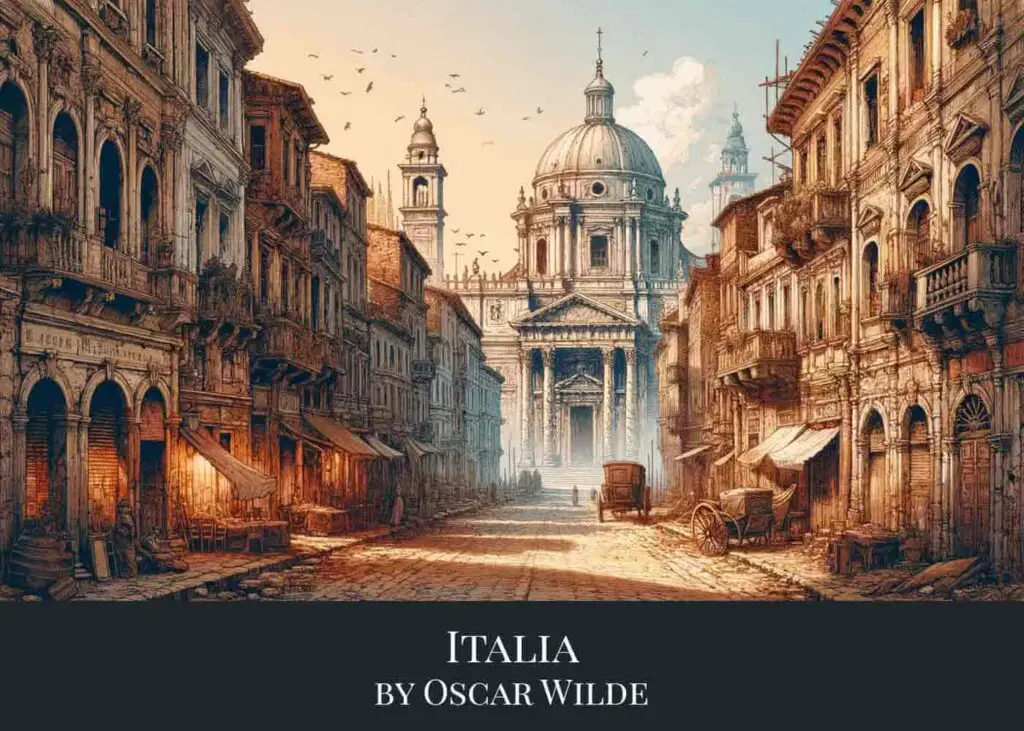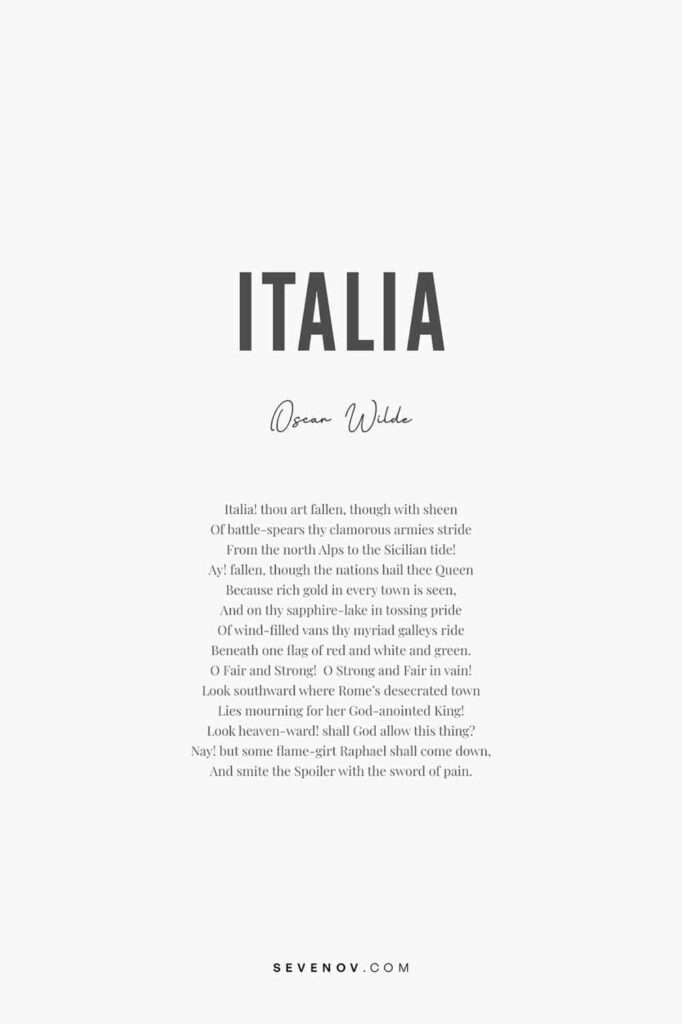
Italia by Oscar Wilde
“Italia” by poet and playwright Oscar Wilde is a passionate and evocative poem that reflects on the fallen glory of Italy. Wilde paints a vivid picture of Italy’s grandeur, contrasting its once-mighty stature with its present state of decline. For those interested in exploring more of his poetic works, Poems offers a collection of his diverse and profound poetry. Poems ebook is available at PageVio.
1. The Poem
Italia! thou art fallen, though with sheen
Of battle-spears thy clamorous armies stride
From the north Alps to the Sicilian tide!
Ay! fallen, though the nations hail thee Queen
Because rich gold in every town is seen,
And on thy sapphire-lake in tossing pride
Of wind-filled vans thy myriad galleys ride
Beneath one flag of red and white and green.
O Fair and Strong! O Strong and Fair in vain!
Look southward where Rome’s desecrated town
Lies mourning for her God-anointed King!
Look heaven-ward! shall God allow this thing?
Nay! but some flame-girt Raphael shall come down,
And smite the Spoiler with the sword of pain.

Size: 8″ x 12″ (2:3 ratio)
Format: PDF
Copyright information: For personal use only
Note: Actual poster background color is white. For the sample poster, the background is made gray for illustration purpose.
2. Italia Analysis
“Italia” is a lamentation over the perceived decline of Italy, despite its outward appearance of strength and wealth. Wilde uses vivid imagery and historical references to convey a sense of loss and injustice. Here’s a breakdown of the poem:
Fallen Italy Despite Apparent Strength
“Italia! thou art fallen, though with sheen / Of battle-spears thy clamorous armies stride / From the north Alps to the Sicilian tide!” – The poem opens by declaring Italy’s fall, despite its powerful armies that stretch from the Alps to Sicily. This contrast sets a tone of a nation that appears strong but is internally weakened.
Illusory Wealth and Power
“Ay! fallen, though the nations hail thee Queen / Because rich gold in every town is seen,” – Italy is recognized as a ‘queen’ among nations due to its wealth, but the speaker suggests that this is a superficial measure of its true condition.
“And on thy sapphire-lake in tossing pride / Of wind-filled vans thy myriad galleys ride / Beneath one flag of red and white and green.” – The speaker describes Italy’s navy, symbolizing its might and wealth. The reference to the Italian flag (red, white, and green) underscores national pride.
Beauty and Strength, But in Vain
“O Fair and Strong! O Strong and Fair in vain!” – Despite Italy’s beauty and strength, the speaker feels these attributes are ultimately futile or not properly utilized.
Desecration of Rome
“Look southward where Rome’s desecrated town / Lies mourning for her God-anointed King!” – The speaker directs attention to Rome, mourning the loss of its spiritual and temporal authority, possibly referencing the Papal States’ loss of power or influence.
Appeal to Divine Justice
“Look heaven-ward! shall God allow this thing?” – The speaker questions whether divine justice will permit such a decline.
“Nay! but some flame-girt Raphael shall come down, / And smite the Spoiler with the sword of pain.” – The poem concludes with a hopeful prophecy that a divine savior, likened to the archangel Raphael, will come to restore justice and punish those responsible for Italy’s downfall.
The poem reflects a romanticized view of Italy, mourning its lost glory and spiritual significance while hoping for a divine intervention to restore its former greatness. The mix of historical, religious, and nationalistic elements showcases the poet’s deep concern for Italy’s state and its future.
3. Conclusion
If “Italia” captivated you, consider delving into more of Oscar Wilde’s poems available at Sevenov.




